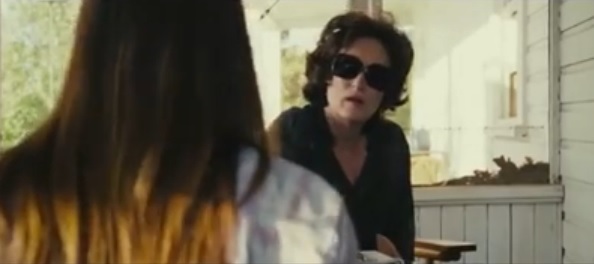


 |
| Photo © 2013 The Weinstein Company |
| Academy Award Nominations: | |
| Best Actress: Meryl Streep | |
| Best Supporting Actress: Julia Roberts | |
| Golden Globe Nominations: | |
| Best Actress (Musical/Comedy): Meryl Streep | |
| Best Supporting Actress: Julia Roberts | |
| Permalink | Home | 2013 | ABC | Blog |